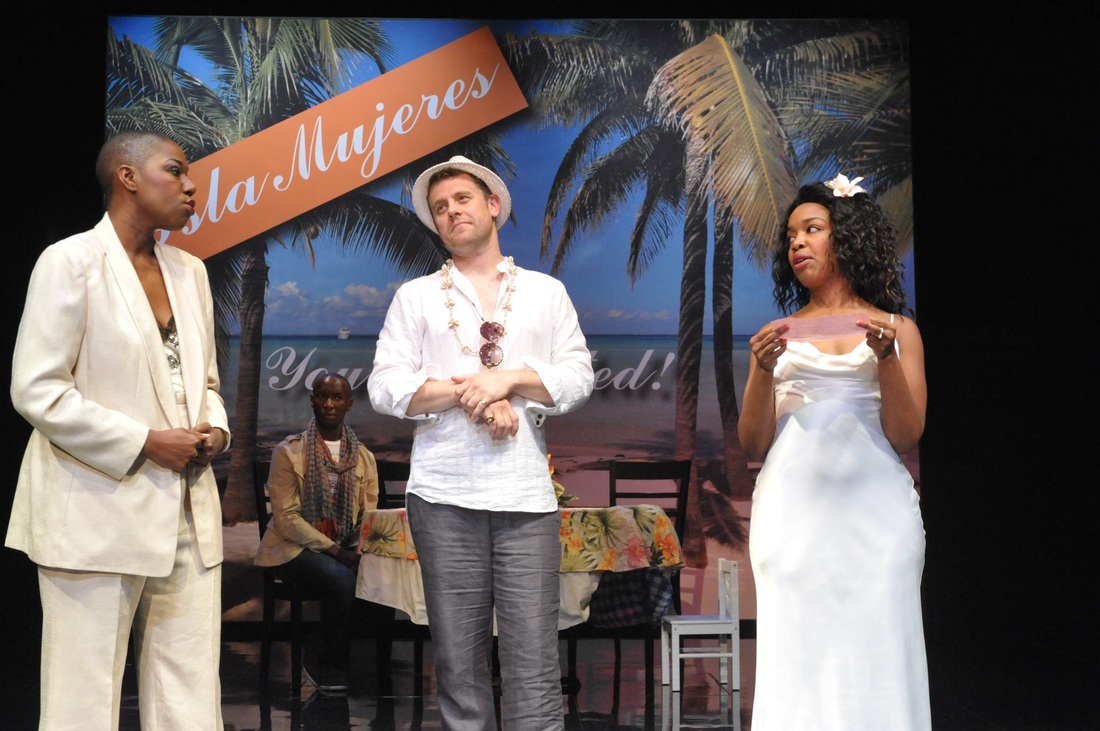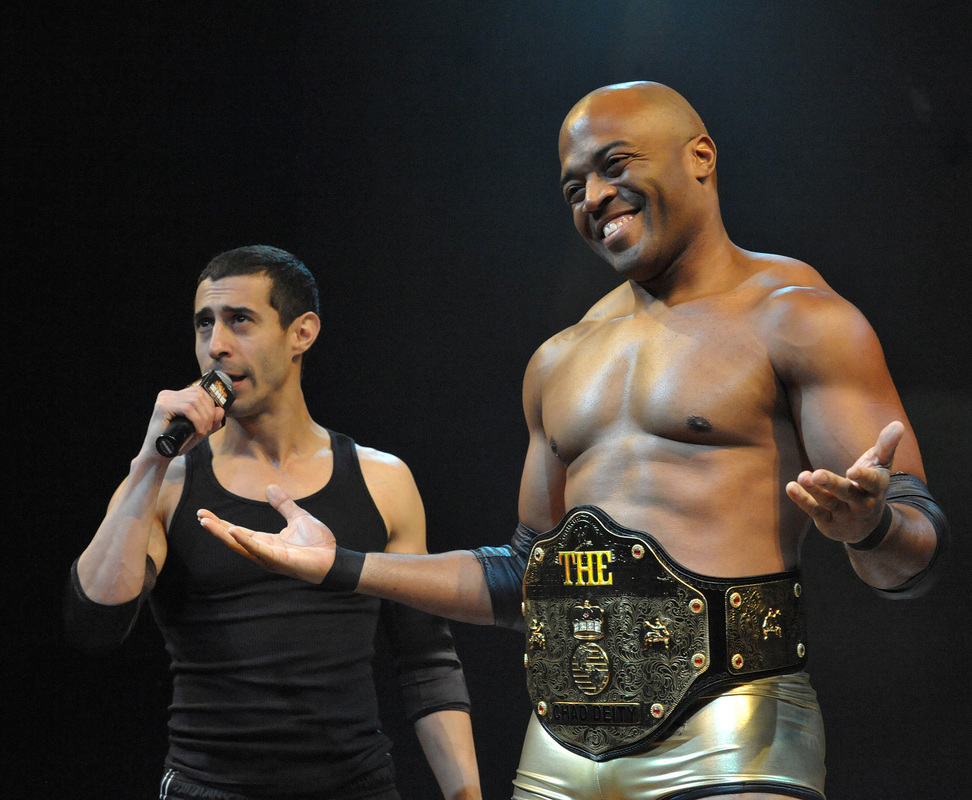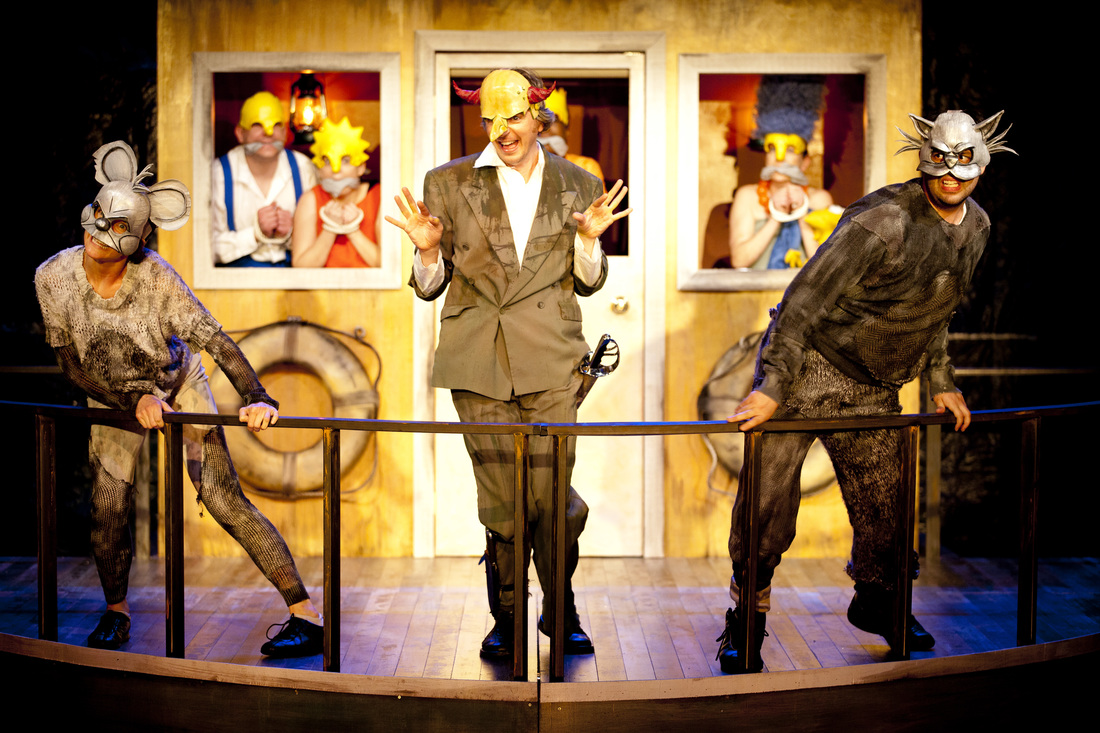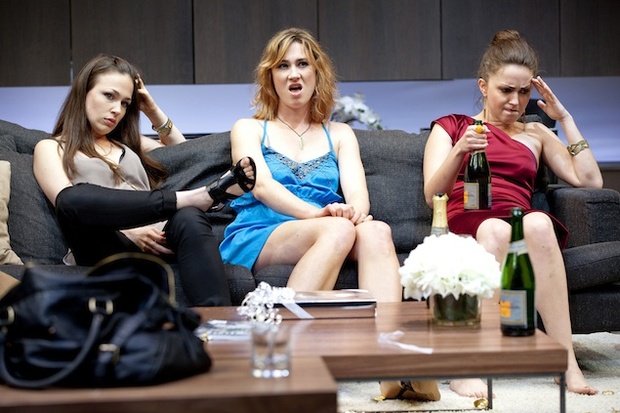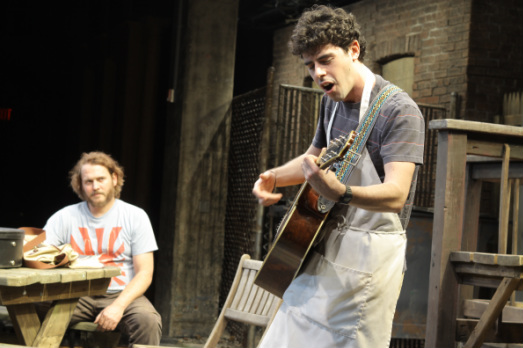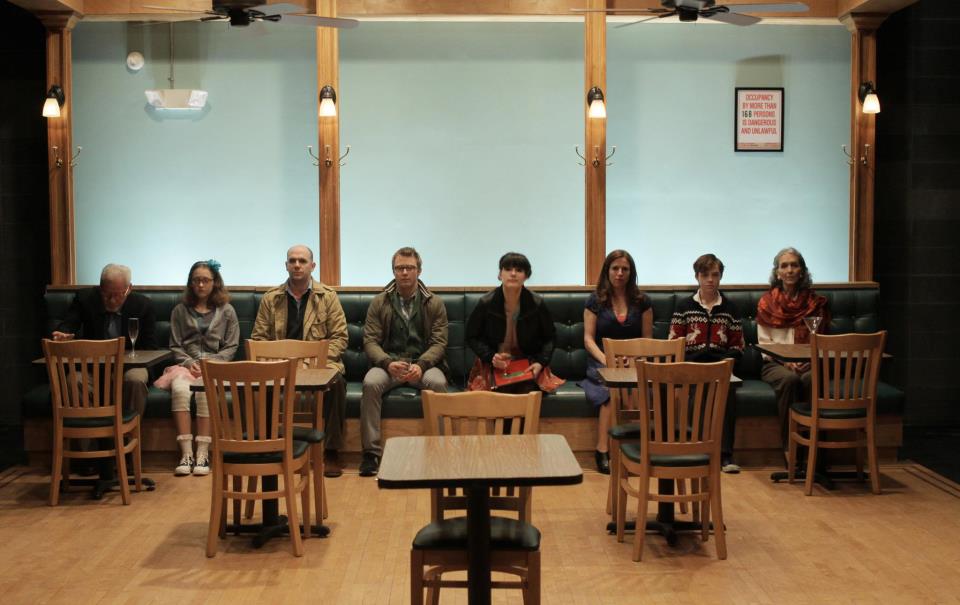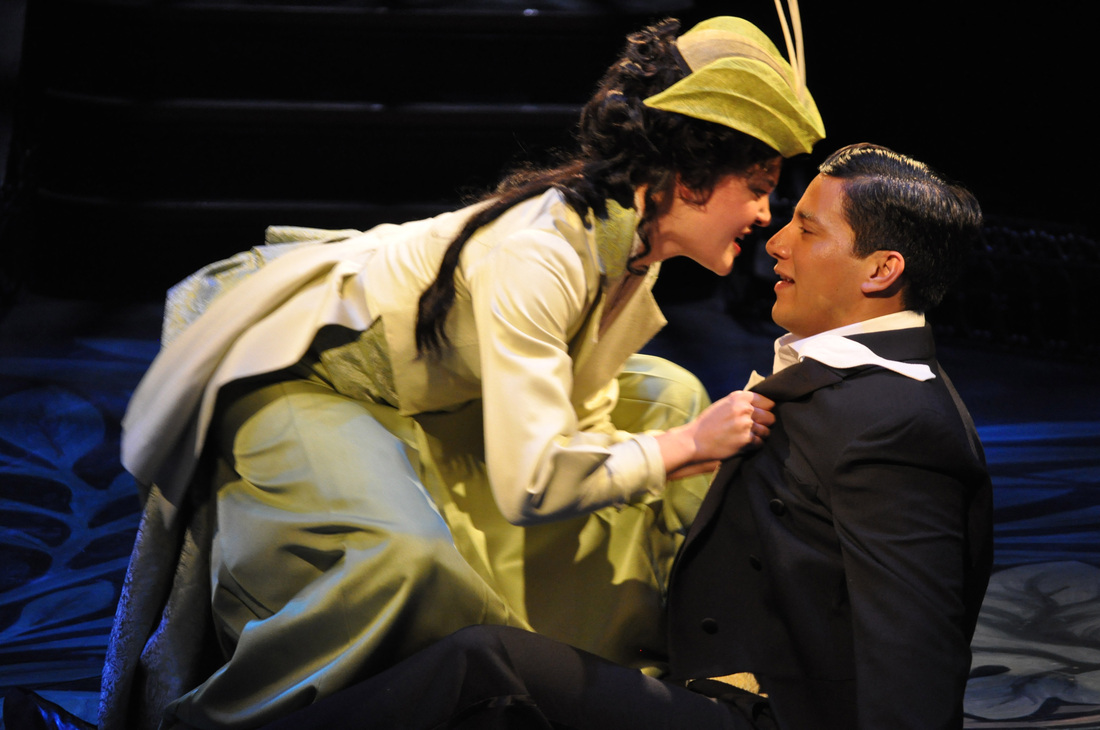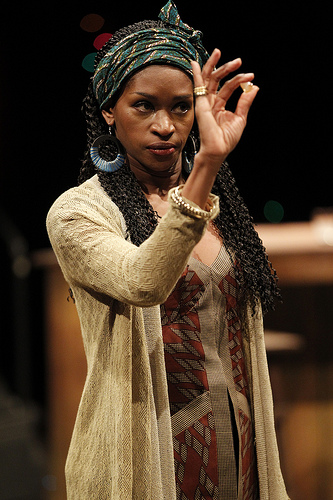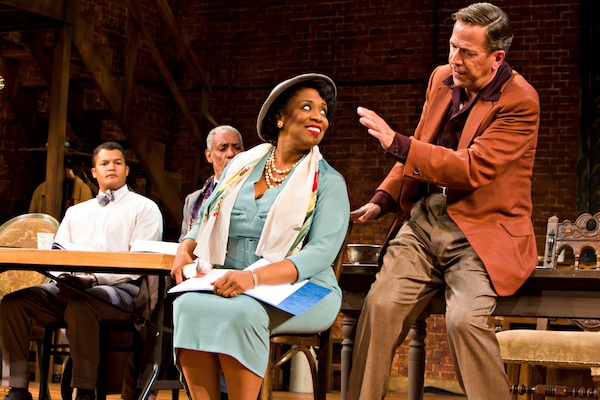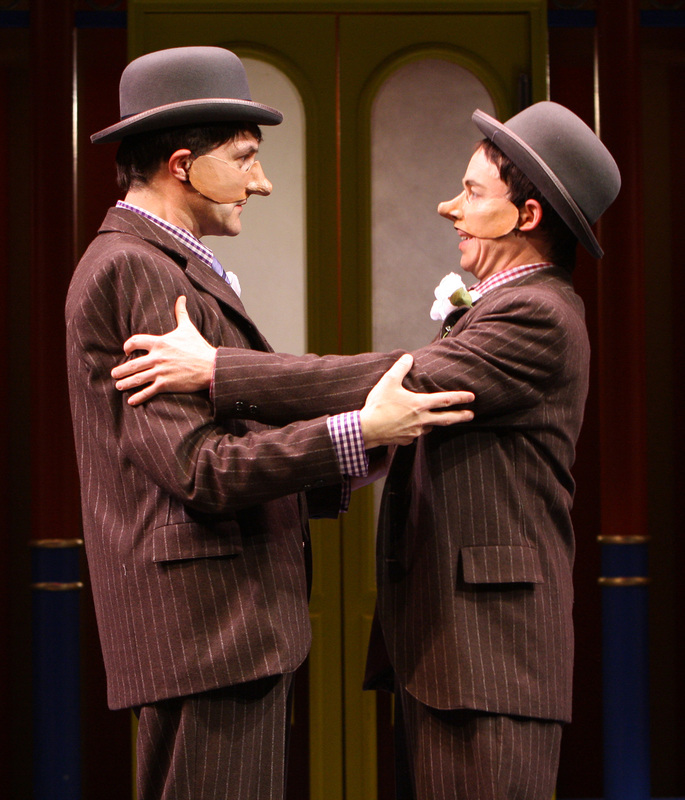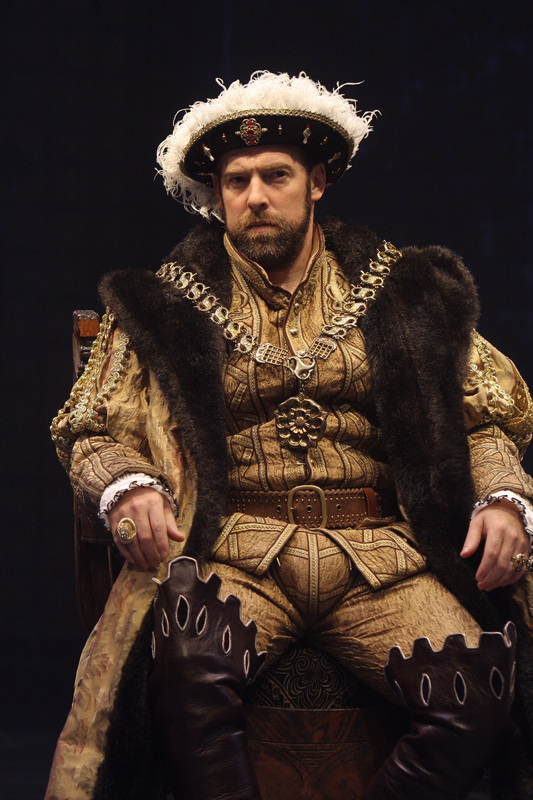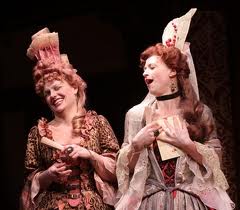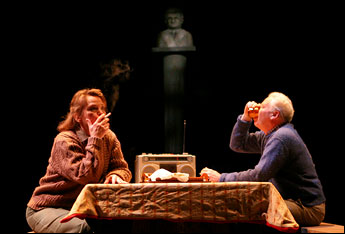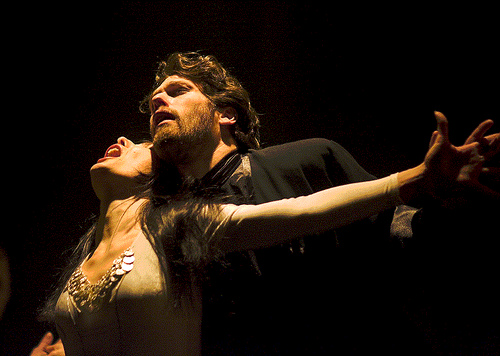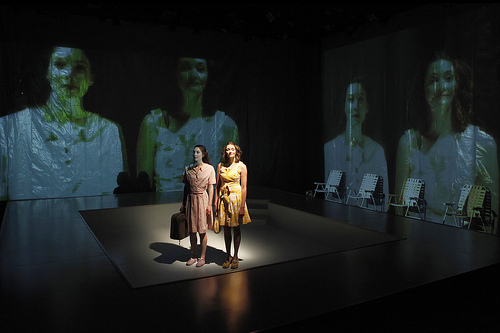|
JACQUELINE LAWTON: Why did you decide to get into theatre? Was there someone or a particular show that inspired you?
MIRIAM WEISFELD: In my senior year of high school, I was torn between art school and theatre school. I was about to register for classes at the Art Institute of Chicago, but I realized I would miss working with language. So I moved to Toronto for a conservatory program there. JL: How do you define dramaturgy? Or explain to people the work that you do? MW: Dramaturgy means asking questions: what’s the story you want to tell? How do you want to tell it? Why do you want to tell it here and now? JL: How long have you lived and worked as a dramaturg in DC? What brought you here? Why have you stayed? MW: I came to DC five years ago to take a job at Woolly Mammoth. I’d been working as a freelance dramaturg in New York, which was fantastic. But I was intrigued by the idea of making theatre in our political capital, and when I got the offer from Woolly I was thrilled. JL: If your work as a dramaturg doesn’t pay the bills, what else do you do? How do you balance this work with your dramaturgy? MW: I pinch myself every day that I can pay my bills now. When I was a freelancer I taught high school acting, wrote press releases for dance companies, answered phones in a box office, etc etc. (Box office work is an amazing education in audience behavior.) JL: What skills and traits do you feel a successful dramaturg should have to support the development of a new play or a production? MW: A solid understanding of as many things as humanly possible, but especially: acting theory, dramatic structure, group dynamics, and human foibles. JL: What is the greatest part of being a dramaturg? What has been your most difficult challenge? MW: Being constantly challenged is the best part of being a dramaturg. Each new project means navigating a new combination of personalities, form, and subject-matter—that’s where the joy lies. It’s the struggle to earn a living that’s hard. JL: Who are your favorite playwrights? What is it about their work that inspires or draws you to them? MW: Beckett. The simple way he captures human absurdity just gets me every time. JL: DC audiences are ... MW: Voraciously curious and bracingly smart. Each time I lead a post-show discussion I know the audience will school me about the content of the work. But they’re not always so confident talking about the form of a new work. Aesthetics are not at the center of DC’s civic life. But the democratic process demands a multiplicity of perspectives and an appreciation for disrupting our habitual ways of thinking—that’s why I believe we need to get more art up in Washington’s daily business. JL: DC actors, designers and directors are .. MW: Really fun to drink with. JL: DC playwrights are … MW: Equally fun to drink with. JL: DC critics are ... MW: I have yet to drink with DC critics. (Does that make me less cool, or more professional?) JL: How do you feel the DC theatre community has addressed the issues of race and gender parity? How has this particular issue impacted you and your ability to get your work produced on the main stages? MW: I think at the root of this question is the tension between a non-profit theatre’s explicit mandate to pursue its artistic mission, and the implicit mandate to proportionally represent the diversity of its community. Only artistic directors can decide whether those mandates are at odds with one another. But we can all advocate, advise, and agitate. And we should. JL: What advice do you have for an up and coming DC based dramaturg who has just moved to D.C.? MW: Find the people doing the work you find most illuminating, and offer to help. Everyone needs help, and it’s the best way to get your foot in the door. JL: What's next for you? Where can we keep up with your work? MW: In addition to developing several plays at Woolly, I’m working on a chapter for the next edition of the Routledge Companion to Dramaturgy. It’s about lobby displays, and it will likely include some shout-outs to DC artists.
0 Comments
JACQUELINE LAWTON: Why did you decide to get into theatre? Was there someone or a particular show that inspired you?
LAUREN HALVORSEN: Musicals were my gateway drug; I saw a high school production of Guys and Dolls when I was eight and it was all gloriously downhill from there. I didn’t hear the word ‘dramaturg’ until I was 20, and when someone explained it to me, I remember thinking, “Wait, that’s really a job? Sign me up.” JL: How do you define dramaturgy? Or explain to people the work that you do? LH: My father asks me a version of this question every time I see him. I actually struggled with it for years, because many of the definitions I’ve heard are just weird, nondescript metaphors that veer into eye-rolling pretension (“keeper of the text” is the absolute worst, with “the play’s midwife” a close second), but my wonderful cohort at Studio, Adrien-Alice Hansel, once described a dramaturg as “a smart, attentive early audience member” for the play and now I use that all the time. It’s actually wise to assume that any time I sound mildly articulate, it’s because I’m paraphrasing something Adrien said first. JL: How long have you lived and worked as a dramaturg in DC? What brought you here? Why have you stayed? LH: I moved to DC from Houston about a year and a half ago, and I came here specifically for the job at Studio. I had been working at a large theatre company that produced a wide variety of work--classics, musicals, new American plays. It was an amazing training ground, but it helped me realize that I wanted to focus exclusively on contemporary and new work. Studio was in the midst of its artistic transition and launching the new play and international initiatives, so it seemed like an exciting time to join. I’ve stayed here because it’s the best job I’ve ever had and DC has quickly become home--though I really miss being in proximity to good queso and breakfast tacos. JL: If your work as a dramaturg doesn’t pay the bills, what else do you do? How do you balance this work with your dramaturgy? LH: I’ve been extremely fortunate in that I’ve always worked as a dramaturg within the cozy, fiscally supportive womb of an institution. Freelance dramaturgy takes a tenacity and ferocity and hustle that I completely lack and I’m endlessly in awe of those who make it work (see: Taylor Hitaffer, Jamila Reddy) JL: What skills and traits do you feel a successful dramaturg should have to support the development of a new play or a production? LH: I’ve actually never dramaturged a new play—I’ve spent years in and around new play development processes, but I’ve never dramaturged a production with the playwright in the room. But I think the two most important qualities of any dramaturg, regardless of the type of production you’re working on, are the ability to listen and an innate sense of curiosity. JL: What is the greatest part of being a dramaturg? What has been your most difficult challenge? LH: It sounds inane, but I get to think and read and write and scheme and collaborate for a living. As far as challenges, when I first started dramaturging, I was kind of thrown into a professional environment with zero training and experience, which led to some crippling insecurity and anxiety. It took me a long time to trust that my artistic opinion was of value and that I deserved to be at the table. JL: Who are your favorite playwrights? What is it about their work that inspires or draws you to them? LH: Oh, this question is always so hard. I met with an MFA playwriting student last week who asked me what contemporary playwrights she should be reading and I sent her a list of like forty people. For the sake of brevity, I’ll single out Annie Baker, Amy Herzog, and Dan Lefranc. All three have made me re-define my ideas about theatricality and authenticity onstage. JL: DC audiences are ... LH: Smart, cultured, and delightfully inquisitive. I’ve been so surprised and humbled by the high level of engagement and intellectual discourse. JL: DC actors, designers and directors are .. LH: Generous and nimble. JL: DC playwrights are … LH: I regrettably only know a handful personally—Danielle Mohlman, David Robinson, Tim Guillot, Kat White—and I think they’re all brilliant, charming, and intrepid, so I’m going to assume that those are universal qualities—and I look forward to connecting with more local writers to support this theory. JL: DC critics are ... LH: Thoughtful, penetrating, and articulate. I’ve never worked in a city with such a wide range of critical voices. JL: How do you feel the DC theatre community has addressed the issues of race and gender parity? How has this particular issue impacted you and your ability to get your work produced on the main stages? LH: I’ll be interested to hear how my fellow interviewees respond to this question, particularly those who’ve lived here longer than I have and have worked at more than one institution. I think we all have a responsibility to produce stories that reflect our communities, and I think as a community we need to emphasize that gender and racial parity in theatre includes but extends beyond the authors and subjects of the works we’re producing--it’s also about ensuring DC theatres are hiring diverse collaborators on every level of a production. JL: What advice do you have for an up and coming DC based dramaturg who has just moved to D.C.? LH: The best way to educate yourself about DC theatre is to see DC theatre. Read a lot of plays (Tryst and The Coffee Bar have excellent chai and comfy couches) If there’s someone in town whose career you admire, or if there’s a company that’s doing work you find exciting, email them and ask if you can pick their brain over coffee. Finding good mentorship is the best thing a young dramaturg can do. It’ll take time and perseverance, but you’ll find your tribe. I think it’s also important to remember that there’s not one tried and true path to being a dramaturg. I studied English and art history in college, did a few internships in lieu of grad school, and then moved from Philly to Pittsburgh to Houston to DC within a five-year period in pursuit of different literary gigs. Everyone’s career trajectory is wildly different, so be open to whatever comes your way. JL: What's next for you? Where can we keep up with your work? LH: I’ll be dramaturging Tom Stoppard’s The Real Thing at Studio later this season, and this June I’ll be dramaturging a staged reading of Danielle Mohlman’s Nexus for Field Trip Theatre. It’ll be my first time working with a playwright in the room, and I’m really thrilled it’s Danielle. JACQUELINE LAWTON: Why did you decide to get into theatre? Was there someone or a particular show that inspired you?
AMRITA RAMANAN: When I began high school, I focused primarily on math and science with the goal of becoming a doctor. During my sophomore year I learned that I needed to add another elective to my plate and theater was the only class that fit my schedule at the time. After three months, I was amazed at how theatre functioned as a transformative platform to share stories, evoke debates, and create empathy. It shifted my viewpoint of the world, emphasizing subjectivity over objectivity. From there, I was hooked and became one less pre-med student in the Indian community (sorry, Amma and Appa!). JL: How do you define dramaturgy? Or explain to people the work that you do? AR: Dramaturgy is the process of shaping the story – whether it is the story within a piece of theater or the story of a theater company. As Artistic Associate/Literary Manager at Arena Stage, my mission is to support the director, playwright, cast and creative team in the rehearsal room by offering questions and support for whatever needs best serve the artistic process – ranging from historical and topical research, responses to the progress of the script or production, and brainstorming how best to engage and invite with the audience and community into the world of the piece. In addition, I support Artistic Director Molly Smith and Director of Artistic Programming David Snider in shaping the storytelling of Arena Stage’s artistic programming by participating in season planning conversations and maintaining Arena Stage’s vision and mission – it’s ‘thru line’ –moving forward. JL: How long have you lived and worked as a dramaturg in DC? What brought you here? Why have you stayed? AR: I’ve been working in the Artistic Development department at Arena for five years – a fact that seems a bit surreal every time I mention it! I grew up in Las Vegas, so the desire to move to an environment that I perceived as the polar opposite of my hometown was dually appealing and terrifying. D.C. is such a rare city in that it’s simultaneously transient and intimate. I am fascinated by the rich interconnectedness of the artists and audiences who live here fused with the constant change of the city’s population and political identity every four to eight years. In addition, the people I’ve connected with here are always eager to feed their cultural appetites, making it a dramaturg’s playground in terms of who you interact with and the libraries, archives, cultural organizations and museums at your doorstep. JL: What skills and traits do you feel a successful dramaturg should have to support the development of a new play or a production? AR: Openness, a desire for innovation, and compassion. JL: What is the greatest part of being a dramaturg? What has been your most difficult challenge? AR: For me, nothing can compare to witnessing the birthing process of an idea and following its journey. I’m currently working with the incredible Tazewell Thompson on a new play Arena commissioned 12 years ago that I have been engaged with ever since I became an Allen Lee Hughes Literary Fellow in 2008. Even though the piece began well before I came to Arena, I’ve had the rare privilege of watching it change and grow, as well as developing a strong relationship with Tazewell through our relationship to the play. In terms of challenges, I think the role of the dramaturg is often stigmatized due to conflicting ideas about the function and ownership of practicing dramaturgy. I was once told by a playwright that they thought dramaturgs were “the police force” of the theatre, intentionally trying to monitor a playwright’s every move and beat them into submission. This story really troubled me as it put the dramaturg into the role of the aggressor as opposed to the advocate or collaborator. It is my belief that the dramaturgy for an artistic process should be owned by every collaborator in the room and that the dramaturg in support of this. Viewing the dramaturg as the police force is a harsh stereotype that needs to be overcome, but luckily I see more and more positive examples of healthy and sustainable dramaturgical collaborations every day. JL: Who are your favorite playwrights? What is it about their work that inspires or draws you to them? AR: There are so many writers that I deeply admire and have a tendency to devour their plays on the spot. I love the work of Marcus Gardley, Bill Cain, Lydia Diamond, Rajiv Joseph, Alice Childress, Ayad Akhtar, and Young Jean Lee – all of whom have challenged me, moved me, transported me to different worlds, and ultimately left a lasting imprint of their work on me. JL: DC audiences are ... AR: inquisitive, intelligent, and devoted JL: DC actors, designers and directors are... AR: brilliant, imaginative, and collaborative JL: DC playwrights are … AR: deft, passionate, and expansive JL: DC critics are ... AR: unapologetic, daring, and thoughtful JL: How do you feel the DC theatre community has addressed the issues of race and gender parity? How has this particular issue impacted you and your ability to get your work produced on the main stages? AR: Great strides have been made for more diversity and inclusivity throughout the DC theatre community, but as Wiletta Mayer says in Alice Childress’ Trouble in Mind, “We have to go further and do better.” I’ve been very proud of the shows Arena Stage, Woolly Mammoth Theater Company, Studio Theater, Forum Theater, Theater J and many others have championed on their stages that represent diversity both through the artists involved and content of the work, but until the work represented on stage reflects our burgeoning racial, ethnic, gender and cultural diversity throughout the world, we can’t rest on our laurels. JL: What advice do you have for an up and coming DC based dramaturg who has just moved to D.C.? AR: See as much art as possible and don’t be afraid to connect with artists whose work draws you in. There’s a bevy of wonderful opportunities in this city and artists ready to engage and add more collaborators to their artistic family. If you find an artist you want to work with and learn from, ask them out for coffee and watch the relationship grow from there. JL: What's next for you? Where can we keep up with your work? AR: So after six life-altering years in D.C., I'm saying goodbye (for now) and venturing into the next chapter of the book of life. First, heading to India on April 1st to explore the practices and methodologies of various theatre artists and troupes through support from the India Foundation for the Arts (and enjoying the perks of seeing my incredibly family and advancing my yoga and dance training while I'm there). Then, I’ll be serving as a co-collaborator with Double Edge Theatre on their summer spectacle, A Thousand and One Nights. I’ll miss ya, D.C., but this won’t be the end! Follow me on Facebook and stay in touch! JACQUELINE LAWTON: Why did you decide to get into theatre? Was there someone or a particular show that inspired you?
MICHELE OSHEROW: I always loved theatre and tried a variety of theatre jobs in my younger days: acting, designing, marketing—you name it—before heading to grad school for English lit. I think seeing Peter Shaffer’s Amadeus when I was a kid (YES, with Tim Curry and Ian McKellen) had me hooked for life. I also saw my first Shakespeare play at the Edinburgh Festival that same year so my brain was probably hard-wired to classics of some kind or another. JL: How do you define dramaturgy? Or explain to people the work that you do? MO: I still haven’t found a definition of dramaturgy that I swear by probably because the work so often depends on the specific project or the needs of a particular director, production team or cast. I’ll explain my work to folks by saying I’m “the scholar in the rehearsal room” (though that looks really pretentious)—someone who works on text and concept with the director and fields questions from artists and actors. I describe my aim to infuse a production with a kind of intellectual energy. I work largely on Shakespeare productions, so I think folks understand the link to scholarship. I also explain that once in the rehearsal room, I try to be a pair of eyes for the person who does not know the play: I attend to clarity of storyline, tracking plot, that sort of thing. It all has to make sense in the end. JL: How long have you lived and worked as a dramaturg in DC? What brought you here? Why have you stayed? MO: I came to the D.C. area for grad school a bazillion (22?) years ago. At that time one of my professors told me to “get serious about Shakespeare and stop doing theatre.” I tried that, but Shakespeare completely separated from theatre felt wrong and distinguishing between my literary studies from what I thought might occur on stage made less and less sense to me; I thought there had to be a way to merge professional theatre and scholarship. I started working at the Folger about 11 years ago—resident dramaturg for the last five years. JL: If your work as a dramaturg doesn’t pay the bills, what else do you do? How do you balance this work with your dramaturgy? MO: I’m an Associate Professor of English at UMBC (University of Maryland, Baltimore County). It’s a terrific institution for creative and scholarly research and has been very supportive of my theatre work. I take advantage of the ‘in’ and try and involve my students in Folger offerings as best I can. Balance? I sure haven’t found it—the guilt of not having written that next book is always there. I also have a fantastically generous husband who doesn’t sulk about my time at the theatre; my children do (though they love attending the productions and meeting the artists). JL: What skills and traits do you feel a successful dramaturg should have to support the development of a new play or a production? MO: I’ve only worked on a few new plays and it’s been thrilling; living playwrights are more exuberant than dead ones. I think the most important skills for a dramaturg on any project are an open mind and insatiable intellectual curiosity. And—this may sound strange coming from an academic--I think it’s helpful to know when to try to inspire feeling over thinking. JL: What is the greatest part of being a dramaturg? What has been your most difficult challenge? MO: There are too many great parts to name! I’m pretty wild about Shakespeare and seeing others respond to his work gives me a genuine thrill—corny, but so it goes. Making the humor work, making people feel something with the same language to which audiences responded hundreds of years back leaves me feeling very ‘connected’ to the human experience. And fostering human connection is one of the things theatre does so beautifully. And then there’s Shakespeare’s language: the poetry, the precision. It all works. To hear it time and again from the mouths of talented actors is one of those gifts I give myself. I love all the possibilities the plays hold, and while I know choices must be made for each production, I get inspired arguing points or choices with directors—challenging them. I don’t need to win those arguments (though it’s a mighty fine day when I do), I just want to recognize and, yes, celebrate the complexities that are in every play. I appreciate how many ‘rights’ there are with Shakespeare and how these stories still work to help us understand our world. Most difficult (and rewarding) challenge? That’s an easy one: Shakespeare’s Henry VIII, directed by Robert Richmond in fall, 2010. That’s a very difficult play. HUGELY difficult. The whole team wrestled with it and the result simply dazzled me. AND the run was extended! For H8! Incredible! JL: Who are your favorite playwrights? What is it about their work that inspires or draws you to them? MO: Well, sigh, Shakespeare’s my favorite. He just gets human nature (for better and worse) and is so good at showing us our secrets. I love the poetry and meta-theatricality with which he’s always playing. I must have read Hamlet 500 times by now and just when I think “this time I won’t see anything new”, Shakespeare always wins. The lesser-read/staged plays like Measure for Measure, Troilus and Cressida, and Cymbeline really attract me and have been a bit of an obsession in recent years. Shakespeare makes me think and feel—deeply and constantly. I am more than lucky that I’m able to engage professionally with these texts. Newer works: I like the rawness of Conor MacPherson and Neil LaBute. I love Suzan Lori Parks’s plays and the theatricality of them. I think Michael Hollinger is smart, watchful and funny and I’m a great fan of Anne Washburn as well—her revamped Orestes remains one of my favorite Folger projects. JL: DC audiences are ... MO: intelligent, generous, engaged. JL: DC actors, designers and directors are .. MO: wickedly smart, creative, thoughtful, fearless. JL: DC playwrights are … MO: becoming more and more celebrated, which is wonderful! JL: DC critics are ... MO: shrewd. JL: How do you feel the DC theatre community has addressed the issues of race and gender parity? How has this particular issue impacted you and your ability to get your work produced on the main stages? MO: I’m very aware of how few directors I’ve worked with are women and/or people of color—there have been some, but not many. It’s a better picture in terms of the pool of designers and actors. I will hear from friends and patrons when there’s a cast without a person of color or very few women’s names listed on a production team. JL: What advice do you have for an up and coming DC based dramaturg who has just moved to D.C.? MO: See a lot of theatre; speak to the great folks behind D.C. theatres and get involved with the projects you’re keen to work on… I’ve had students who’ve volunteered their services to get their feet in theatre doors and it has worked. (But don’t quit your day job just yet.) JL: What's next for you? Where can we keep up with your work? MO: We've just closed Henry 5- and are currently rehearsing Twelfth Night. Next season has just been announced and I'm very excited about it-- we've already begun the work! JACQUELINE LAWTON: Why did you decide to get into theatre? Was there someone or a particular show that inspired you?
HANNAH HESSEL: I’ve been in theatre for longer than I can remember. I think I owe my interest to my older performer-of-a-sister and my very theatrically-educated parents for taking me to see Gilbert and Sullivan, Shakespeare and more during my childhood. Growing up in DC meant that having a theatrical education was easy. My first onstage experience came at Adventure Theatre summer camp, I grew up as a subscriber to the Shakespeare Theatre Company, and did summers there and at Theater Lab. JL: How do you define dramaturgy? Or explain to people the work that you do? HH: I think I say something different every time, or I laugh the question off. The problem is that it is different every time. With my full-time work at the Shakespeare Theatre Company I find ways to bridge and intensify connections between our audiences and our work. With Forum Theatre: I work to maintain our values of artistry, community and wonder. The work that I do with the Project Gym helps to artists to find sustainable creativity through collaboration and skill building. And I also work with individual artists to provide an extra creative eye or analysis on the work they are building. I fully believe all of that uses the skills of dramaturgy but I have no idea how I would fit them into a single job explanation. And I don’t know if they would accurately reflect any other dramaturg’s definition. JL: How long have you lived and worked as a dramaturg in DC? What brought you here? Why have you stayed? HH: Although a native of DC, I started working here professionally directly after finishing undergrad at Sarah Lawrence College. Beginning as an intern at Theater J, I stayed for five years combining my love of Jewish history and culture with my love of theater. At Theater J I grew as an artist and a dramaturg and in that time I also made strong connections with the larger DC arts community. I left for three years to pursue an MFA in Dramaturgy from Columbia University. Being in New York gave me the opportunity to see a tremendous amount of amazing work and meet a remarkable number of amazing artists. The time energized me for moving back to the district. I hope to stay and be a part of making DC as vibrant of an arts and theater community as possible. JL: If your work as a dramaturg doesn’t pay the bills, what else do you do? How do you balance this work with your dramaturgy? HH: I’ve been extremely lucky to make a living through dramaturgy my entire professional career. However, like many people in this field that living is small and my time is divided between many different programs. In addition to my full time job (40+ hours a week), I put in a couple hours a week towards Forum Theatre and about 15 hours a week into my fledgling company The Project Gym. It’s a busy and sometimes maddening life but I love it all. JL: What skills and traits do you feel a successful dramaturg should have to support the development of a new play or a production? HH: So many but here are a few…
JL: What is the greatest part of being a dramaturg? What has been your most difficult challenge? HH: The greatest part is being able to interact and be inspired by a wide range of artists. The most difficult part is the frustration of being in a field that hasn’t figured out how to articulate its relevance to the culture at large. Because of this, issues of mismanagement and lack of forward thinking, our field feels like it’s lagging behind both artistically and financially. I know there are many people working to counter this, so I refuse to give up hope that someday theater can be an important part of all citizens’ lives. JL: Who are your favorite playwrights? What is it about their work that inspires or draws you to them? HH: There are many generative artists who I’m drawn to by their passion, aesthetic and refusal to answer all the questions. The list would be long so here are three very different writers whose work I keep returning to: Caryl Churchill always challenges me and I love that she considers how the structure affects the storytelling. In doing so, each play is crafted into its own unique experience. Tennessee Williams will always be a favorite of mine. I started reading, and sobbing, over his work at a young age and still his stories of desperation and longing for connection touch me to my core. And DC’s very own Stephen Spotswood, because I’d feel terrible if I didn’t mention our local folks. Stephen’s work, in addition to tackling interesting and complicated topics, always impresses me with its use of language and rhythm. JL: DC audiences are ... HH: So incredibly smart. Don’t try to pull anything over on our audiences, it won’t work. JL: DC actors, designers and directors are .. HH: Eager to collaborate. I’ve been overwhelmed by the interest in the Project Gym from all sectors of the DC theater community. People want to come together, learn from and be inspired by each other. JL: DC playwrights are … HH: Hungry. Over the past few years, I’ve been amazed how much stronger the playwrighting community has become and despite increased opportunities it is never enough to feed them. It’s an exciting place to be, and I hope more opportunities will rise. JL: DC critics are ... HH: This is a hard one. I think all our critics mean well and want a successful community. I sometimes get sad about the current state of arts criticism both in terms of opportunity and professionalism, but that’s a longer story. JL: How do you feel the DC theatre community has addressed the issues of race and gender parity? How has this particular issue impacted you and your ability to get your work produced on the main stages? HH: We are lucky in this city to have some strong personalities who will always stand up for what is just and right. We are a city that doesn’t back down from arguments. I love this about DC. We haven’t reached any amount of parity. I will say some theaters are doing better than others; they keep it at the front of conversations and try to incorporate it in decision making. One of the things that I love about Forum Theatre is that we want to have the conversation. We noticed a problem within our own season and addressed it. Beyond addressing it, we pulled together members from the community to talk specifically about issues facing female playwrights. And we are currently discussing the best time to have a similar conversation about race. These are conversations that NEED to happen, and keep happening until there is no longer an issue. JL: What advice do you have for an up and coming DC based dramaturg who has just moved to D.C.? HH: Find kindred spirits. Have a group of artists that you always love talking to and working with. Have friends outside of theater. Read. Talk. See. (Attend Project Gym) Don’t put yourself in a box by what someone has told you dramaturgy is. Use your tools how you see fit. JL: What's next for you? Where can we keep up with your work? HH: In the next few months I’ll be leading a number of discussions at STC including a symposium about our productions of Shakespeare’s Coriolanus and Schiller’s Wallenstein (adapted by poet Robert Pinsky, who will be in attendance) on Sunday, April 28. The plays are complicated and feel very urgent given the current state of our military. And if you work in the Penn Quarter area you should come to the weekly performance series I curate, Happenings at the Harman! At Forum I will be working on Clementine in the Lower Nine and our upcoming Natsu Power’s directed devised piece that will go up in the summer. You can find out more about Project Gym at theprojectgym.wordpress.com. You can follow me on twitter: @hanvnah Oh, and I’m planning a wedding, so there’s that. 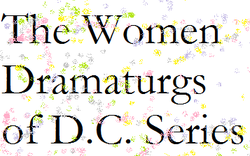 Welcome to the Women Dramaturgs of D.C. Series! Over the next few days, you'll be introduced to an extraordinary group of women working in the American Theatre as freelance and resident dramaturgs, literary managers, and directors of new play development. You'll find these women in the rehearsal halls of local, regional, and national theatre. And I hold each and every one of them the highest esteem. While there is no one way to define the role of a dramaturg, the Literary Managers and Dramaturgs of Americas has an excellent definition and informative list of duties here. My favorite parts of dramaturgy have to do with working with playwrights on new plays; speaking to audiences about a production and the process of bringing a play to the stage; teaching young people about how complicated ideas and different worlds can be explored through theatre; and bringing together the world of the play in the form of cultural and historical research. Now, as with my previous series on Playwrights, Directors and Artistic Directors, it is my hope that these interviews will serve others who are making their way as dramaturgs in the Nation's Capital, and beyond. And as all of you playwrights and directors begin to work on new plays this season, please consider reaching out one of these amazing, smart, talented, and hardworking women dramaturgs. 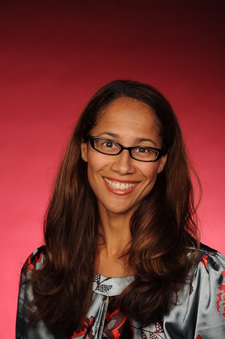 FAEDRA CHATARD CARPENTER Faedra Chatard Carenter (B.A., Spelman College; M.A. Washington University; Ph.D. Stanford University) is an assistant professor of theater and performance studies at the University of Maryland, College Park and a freelance dramaturg. A former resident dramaturg for Arena Stage in D.C. and Crossroads Theatre Company in New Jersey, Dr. Carpenter has also worked as a professional dramaturg for Centerstage, The John F. Kennedy Center for the Performing Arts, the African Continuum Theatre Company, Theater J, Black Women Playwrights, and TheatreWorks. Carpenter is an Advisory Editor in Drama for Callaloo, an Editorial Board Member for The Southern Quarterly, and is on the Board of Directors for Literary Managers and Dramaturgs of the Americas (LMDA). Her scholarly interests include the study of race, sexuality, and gender in contemporary performance and her work is published in Review: The Journal of Dramaturgy; Theatre Topics; Women & Performance; Text and Performance Quarterly; and Callaloo. 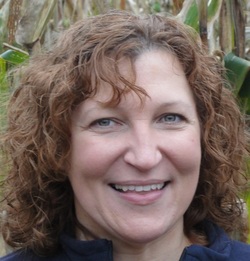 ANN-MARIE DITTMANN Ann-Marie Dittmann works as a Library Associate at the Arlington Public Library where she plans and facilitates a wide variety of adult programs including theater and dance performances, feature and documentary film series, and author talks. She also curate, Down Stage Center, is a meet-the-artist series featuring theater artists in the metro DC area, with a concentrated focus on those in Arlington County. Recent professional theater activities include: Production Dramaturg, Chess and Sunset Boulevard, Signature Theater (Arlington, VA); Since January 2011 I have served as a Helen Hayes Awards Judge for Theater Washington. Additional volunteer activities have included sitting on the grant review panel for the Arlington Community Foundation’s Community Enhancement Grants for the Arts and Humanities. Previous dramaturgical positions have included serving as the Audience Enrichment Manager at Arena Stage and Literary Assistant at Goodspeed Musicals. 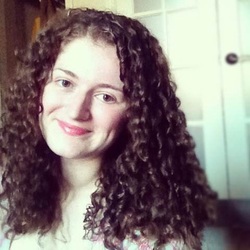 LAUREN HALVORSEN Lauren Halvorsen is the Literary Associate at The Studio Theatre, where her dramaturgy credits include The Motherfucker with the Hat, The Aliens, Bachelorette, The Big Meal, and Time Stands Still. Previously, she spent three seasons as Literary Manager of the Alley Theatre in Houston, TX. Lauren is also an Artistic Associate with WordBRIDGE Playwrights Laboratory, where she facilitated the development of 38 plays over a five-year period. She has worked in various artistic capacities for City Theatre Company, Eugene O’Neill Theater Center, First Person Arts Festival, and The Wilma Theater. Lauren is a graduate of Bryn Mawr College. 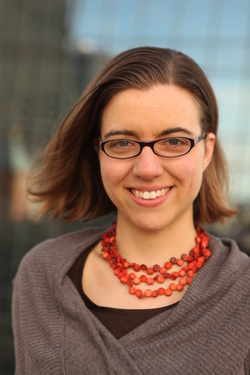 ADRIEN-ALICE HANSEL Adrien-Alice Hansel is Literary Director at The Studio Theatre, where she oversees the expansion of their new play and international programming and new audience engagement initiatives. At Studio, she has dramaturged An Iliad, Dirt,Invisible Man, Sucker Punch, The Golden Dragon, Lungs, The History of Kisses and The New Electric Ballroom, among others. Previous to joining Studio, she spent eight seasons at the Actors Theatre of Louisville, where she headed the literary department and coordinated project scouting, selection, and development for the Humana Festival of New American Plays. She also served as production dramaturg on roughly 50 new, contemporary, and classic plays. Her production work at Actors includes commissions Gina Gionfriddo’s Becky Shaw (2009 Pulitzer finalist), Naomi Wallace’sThe Hard Weather Boating Party, Jordan Harrison’s Maple and Vine, and Craig Wright’s The Unseen, as well as premieres by Rinne Groff, Adam Bock, Charles Mee, Lisa Dillman, and John Belluso. Ms. Hansel also has extensive experience in developing projects with ensemble theatres, including The Method Gun with Kirk Lynn and Rude Mechs, This Beautiful Citywith The Civilians, Cabin Pressure with Anne Bogart and SITI Company and Batch with Alice Tuan and New Paradise Laboratories. She has also worked in the literary offices of Yale Repertory Theatre and Seattle Repertory Theatre, and has served on funding panels for the Joyce Foundation, McKnight Foundation, and Creative Capital’s MAP Fund, among others. She is the co-editor of eight anthologies of plays from Actors Theatre and three editions of plays through Studio Theatre. Ms. Hansel holds an M.F.A. from the Yale School of Drama. 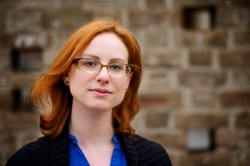 JENN BOOK HASELSWERDT Jenn Book Haselswerdt is a dramaturg, writer, and theatre education professional in the Washington, DC area. She is an Advising Dramaturg/Producer with The Inkwell, where recent dramaturgical work has included The Body (Steve Moulds, playwright), The Snake Charmer (Eric Loo, playwright), Terminals (David Robinson, playwright), Forgotten Kingdoms (Randy Baker, playwright), Where the Whangdoodle Sings (Kristopher Frithjof Peterson, playwright), Twigs & Bone (Tiffany Antone, playwright), and Crown of Shadows (formerly strive/seek/find, Jason Gray Platt, playwright). Dramaturgy with other area theatres includes TETHER (Doorway Arts Ensemble), Bleed and An Ordinary Afternoon (DAE’s Playground series), Off the Block (Active Cultures), Eulogy (Imagination Stage), and Sing and Never Tire (KUUMBA Players). Jenn received her MA in theatre history and criticism, dramaturgy focus, from The Catholic University of America. She has been the Education Program Manager at Imagination Stage (Bethesda, MD) since 2007, where she has had the opportunity to teach creative drama and music, as well as write plays for young actors. Jenn has also taught with C2 Educational Centers and the DCJCC. Jenn lives in Silver Spring with her husband, their son, their cat, and their turtle. 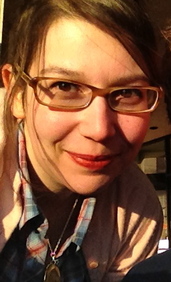 HANNAH J. HESSEL Hannah J. Hessel is the Founder and a Creative Trainer at the Project Gym, a space for creative development. She spends her days as the Audience Enrichment Manager at the Shakespeare Theatre Company. At STC, she runs the Creative Conversations discussion series which includes a range of discussion formats including the innovative Twitter Night providing an online conversation before and after a performance. She also oversees the free weekly performance series Happenings at the Harman. Outside of STC, she serves as the Senior Dramaturg at Forum Theatre. She was the Literary Director, Outreach and Education Associate at Theater J. She serves on the board of the Association of Jewish Theater. A graduate of Sarah Lawrence College, she holds an MFA in dramaturgy from Columbia University. 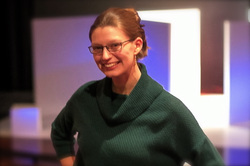 TAYLOR LEE HITAFFER Taylor Lee Hitaffer is a Washington, DC based freelance dramaturg and arts administrator. Educated in Theatre Studies from Towson University, Taylor has served as dramaturg for some of the District's finest nonprofit performing arts organizations, including Constellation Theatre Company, Theater J and The John F. Kennedy Center for the Performing Arts. She is an advising script reader and core dramaturg for The Inkwell, DC's premiere resource for new play development. Currently, Taylor is the Program Assistant for the Kennedy Center American College Theater Festival, where she's spent the last four seasons coordinating the KCACTF National Festival, the MFA Playwrights' Workshop and the New Play Dramaturgy Intensive. Taylor is a proud member of Literary Managers and Dramaturgs of the Americas, Theatre Communications Group, Write Local. Play Global. and The Playwrights' Center. 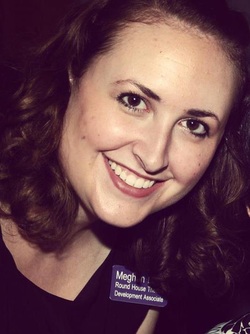 MEGHAN LONG Meghan Long is a theatrical producer, manager, dramaturg, and arts administrator. She recently moved from D.C. to New York in July 2012 to pursue an MFA in Theatre Management and Producing at Columbia University’s School of the Arts. During her time at the School of the Arts, she has associate produced No Boundaries: New Short Play Festival and is currently associate producing Paulina Barros’ thesis production of THE COMFORT OF NUMBERS. Meghan is the producer for Junesong, a D.C.-based arts collective, which she co-founded with Timothy J. Guillot. With Junesong, she recently produced the premier of Timothy J. Guillot’s THE WEBCAM PLAY at the 2012 Capital Fringe Festival, and the premiere production of Timothy J. Guillot’s WE FIGHT WE DIE through the Mead Theatre Lab Program at Flashpoint. In addition to her work with Junesong, she is a Partner-in-Ink and seasoned dramaturg at The Inkwell. Meghan has worked on numerous Inkwell projects over the past three years, including two Inkreadings: Clarence Coo's BEAUTIFUL PROVINCE (BELLE PROVENCE), which was presented at the 2011 Bay Area Playwrights Festival and Henry Murray's MONKEY ADORED (98% HUMAN), which received a premiere production at Los Angeles' Rogue Machine in September 2011. Most recently, she was an Inkwell dramaturg for a showcase reading of Mariana King’s OFELIA’S LOVERS. Meghan has also worked administratively in many D.C.-area theaters, including Woolly Mammoth Theatre Company and Round House Theatre. 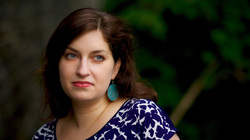 LAURA ESTI MILLER Laura Esti Miller is a dramaturg, literary manager, writer, and educator. She is the Literary Manager for Forum Theatre in Silver Spring, MD, and a Partner-in-Ink with The Inkwell, the resource for new play development in the nation's capital. Recently, she was named an associate member of Pinky Swear Productions in DC and her co-created devised dance-theatre piece, Mark Twain's Joan of Arc, was featured in Burning Coal Theatre's Politheatrics festival in Raleigh, NC. She has worked as a dramaturg, writer, or researcher for numerous productions along the East Coast including The Public Theater's 2007 production of Romeo and Juliet. Laura is the former Creative Development Director of the off-Broadway company Electric Pear Productions, and has had the honor of working with The Kennedy Center, Shakespeare's Globe Theatre, The Princess Grace Awards, Drama Dept, g14 productions, Rorschach Theatre, Urban Garden Performing Arts, Premiere Stages, Chesapeake Shakespeare Company, visual artists Sherrard Bostwick and Juliana Cope, and collaborating musically with the groups Casual Occupation and The Working Effective. She is a proud alumna of Brooklyn College and James Madison University. 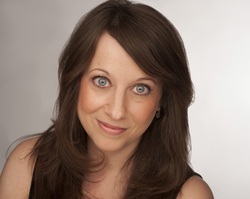 MICHELE OSHEROW Michele Osherow is Associate Professor of English and Affiliate Associate Professor of Judaic Studies at the University of Maryland, Baltimore County. She received her M.A. and Ph.D. in English Literature from the University of Maryland, College Park. Areas of specialization include Shakespeare and Renaissance Literature, Biblical Literature, Jewish American Literature, Dramatic Literature, and Women's Studies. At UMBC she has enjoyed collaborating with faculty in the departments of Theatre, Mathematics, Visual Arts, and the Imaging Research Center. Her experience in professional theatre includes serving as Resident Dramaturg at the Folger Theatre and serving on the Board of and performing for the Quotidian Theatre Company (most recently in Brian Friel’s Afterplay; summer, 2012). Publications include "Crafting Queens: Early Modern Readings of Esther," in Queens and Power in Early Modern Europe (Nebraska UP), "She is in the right: Biblical Maternity in All's Well that Ends Well" in Routledge's Accents on Shakespeare Series, and "'Give ear o' princes': Deborah, Elizabeth, and the Right Word," in Explorations in Renaissance Culture. Her book Biblical Women's Voices in Early Modern England was released by Ashgate Publishing Company in 2009. She is co-writing a text with theatre director Aaron Posner on staging Shakespeare, is co-editing an encyclopedia on Early Modern Englishwomen, Exemplary Lives and Memorable Acts, 1500-1650 (Ashgate) and is currently researching contemporary American productions of Shakespeare for the volume How We Make Shakespeare Mean, co-authored with Gary Waller (SUNY Purchase). Michele has served several times as Interim Executive Director of the Shakespeare Association of America. 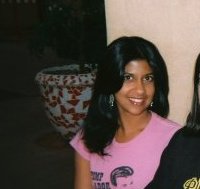 AMRITA RAMANAN is the Artistic Associate/Literary Manager at Arena Stage. Her production dramaturgy credits include Mary T. & Lizzy K., My Fair Lady, The Music Man, Trouble in Mind, Ruined, Duke Ellington’s Sophisticated Ladies and Crowns (Arena Stage); Skywriter (2009 Cap Fringe Festival); and Cymbeline (Great River Shakespeare Festival). Prior to her position as Artistic Associate/Literary Manager, Amrita was the New Play Producing Fellow and Dramaturgy Fellow with Arena Stage, the School Programs Intern at the Shakespeare Theatre Company, and wore a number of hats at the Great River Shakespeare Festival, where she worked in education, outreach, publicity and marketing during her four-season tenure. For two years, Amrita has served as an adjudicator for the D.C. Commission of Arts and Humanities Larry Neal Writer’s Competition and as a script reader for The Playwrights’ Center. A West Coast native, Amrita holds a B.F.A. in dramaturgy and theater history from the University of Arizona. 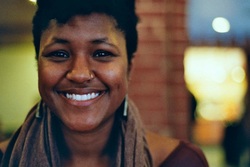 JAMILA REDDY Jamila Reddy is director, poet, dramaturg, and teaching artist. She is an alumna of the University of North Carolina at Chapel Hill, where she received BAs in Dramatic Art and Sociology. She directed several productions at the undergraduate level, including the premier of Kind of Blue, an original play by Kuamel Winston Stewart, and Ntozake Shange's For Colored Girls Who have Considered Suicide When the Rainbow is Enuf. For her contributions to the Department of Dramatic Art at UNC, Jamila received the Richard and Christopher Edward Adler Award for Excellence in Dramatic Art (2010) and the Louise Lamont Award for Excellence (2011). Jamila was a member of the 2008 Bull City National performance poetry slam team. She served as artistic director (2008-9) and two-term president (2009-11) of Ebony Readers Onyx Theatre, a spoken word/theatre performance ensemble at the University of North Carolina at Chapel Hill. Jamila served as the inaugural Artistic Apprentice at The Studio Theatre in Washington, DC where she assistant directed five main stage productions and worked in the literary department. She served as dramaturg for the workshop and staged reading of Danielle Mohlman's Stopgap, and directed the World Premier production at the 2012 Capital Fringe Festival. Jamila is currently living in Washington, D.C working as an Assistant Resident Director at The American University and serving as a Teaching Artist and Poetry Slam Team Coach for the Woodrow Wilson High School Slam Team with Split This Rock. Jamila recently worked as Dramaturg on David Mamet's Race at Theater J in February of 2013. 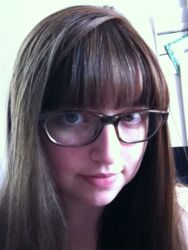 LARONIKA THOMAS LaRonika Thomas is a doctoral student in the Theatre and Performance Studies Department at the University of Maryland. She holds an MA in Theatre from Purdue University and a BA in Theatre and Anthropology from Indiana University, and also serves as adjunct faculty in the Theatre and Communications departments for the Community College of Baltimore County. Her research interests include cultural space and cultural policy, particularly in 21st century Chicago, site-specific performance, performance and identity, online archiving and databases in the new play world, and digital performance. LaRonika is currently the Vice President for Regional Activity for the Literary Managers & Dramaturgs of the Americas (LMDA), having previously served in several positions for the organization. She has worked in various capacities with the Goodman Theatre, the Public Theater, CenterStage, Chicago Shakespeare Theatre, Woolly Mammoth Theatre Company, The Playwright’s Center, Neo-Futurists, and Writers’ Theatre, among others. She has presented papers and chaired panels at several LMDA conferences and at ATHE, where she was elected to the one-year position of graduate student representative for the Dramaturgy Focus Group during the 2012 conference. LaRonika’s short play, J-Rots, was a finalist for the 2012 Heideman Award at the Actors Theatre of Louisville. She is a recipient of an LMDA residency grant as well as three Chicago City Arts Assistance Program Grants for her individual work. 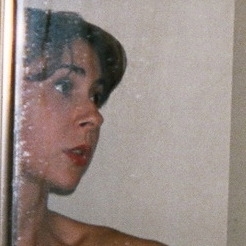 MIRIAM WEISFELD Miriam Weisfeld is the Director of Artistic Development at Woolly Mammoth, where she was lead producer of the 30th anniversary conference on Theatre, Democracy, and Engagement, and has dramaturged several world premieres including Anne Washburn’s MR. BURNS, David Adjmi’s STUNNING, Robert O’Hara’s ANTEBELLUM and BOOTYCANDY, and others. Additional credits include work for New York Theatre Workshop (projects with JoAnne Akalaitis, Ivo van Hove, and Universes); A.R.T. (with Robert Woodruff, Anne Bogart, and Paula Vogel); Two River Theatre/Folger Theatre (with Teller); Steppenwolf Theatre; Actors Theatre of Louisville; Lookingglass Theatre; and the Banff Playwrights Colony (upcoming). She has lectured on theatre at Harvard University, MIT, George Washington University, Suffolk University, Northwestern University, the Kennedy Center, and the Moscow Art Theatre School. She holds an MFA in Dramaturgy from the A.R.T./MXAT Institute at Harvard University. She is a contributing author to the next edition of the Routledge Companion to Dramaturgy. 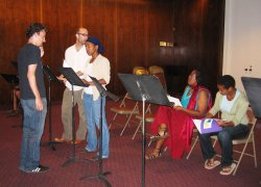 In December of 2004, I was living in Baltimore and had completed a brief stint at CENTERSTAGE. By January of 2005, I was working as a temp at Catholic Relief Services. For three weeks that winter, I walked to and from work; a total of three miles. I worked from 10:00am to 6:00pm. When I got I came home, I cooked dinner and wrote from 8:00pm to 11:00pm. I liked my work. I liked being in service to the greater good. I was working there during the Indian Ocean tsunami of 2004. I liked the stability of my schedule and the steady salary. So much so, that I considered shifting my life and career. But theatre had saved my life after a series of traumatic experiences (that I'll write about one day) and I knew I wasn't ready to leave it. And as much as I missed Austin and missed being surrounded by artists of various disciplines eager to work and create with together, I knew that moving back to Texas wasn't an option. Mainly, because I had spent a fortune getting to the East Coast. So, I kept plugging along. 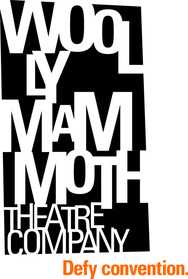 Towards the end of January, a dear friend sent me the notice for the Literary Internship at Woolly Mammoth Theatre Company. His message read: "Don't think about it, just apply. Don't try to figure it out, just apply. Don't freak out about all the reasons why it'll hard as hell to make work, just apply." So I did and by the grace of divine providence and all that is meant to be, I got the internship. Later, I learned that my boss, Mary Resing, who was then Woolly's Director of New Play Development, had gone to school with the brilliant and amazing Jill Dolan (one of my mentors, references and advocates). Mary figured that anyone who had successfully survived so many classes with Jill had to be smart, hardworking, talented and up for a challenge! And I was, ready for the challenge and eager to absorb everything! So, I went from a lovely mile and half walk to and from work to an exhaustive hour long train commute each way. I went from having a steady and decent income to making barely enough money to cover transportation and had to take a part-time at the Ford's Theatre box office to make rent each month. But I was happy. During those one hour train ride, I read the most amazing and adventurous plays and I met so many wonderful people while working at the Ford's Theatre. Also, I started writing a play, DEEP BELLY BEAUTIFUL. My time at Woolly Mammoth was amazing. The extensive training that I received and the actually professional opportunities given to me went above and beyond my expectations. I learned an approach to dramaturgy that works to serve the playwright's voice and vision. I learned how to ask questions about the playwrights' intention and writing process, which for me, is the first and most important part of the process. I learned how to bring the world of the play to life through research, music, food, photographs, geography, politics, and humor. I learned how to communicate the spirit of the production to the audience. And by working with such extraordinary playwrights as Gina Gionfriddo, Kirsten Greenidge, Sherry Shepard-Massat and Sarah Ruhl, I also learned how to be a better playwright. I completed my internship in August of 2005. From there, I went to work at the Folger Shakespeare Library, but I continued to work as a dramaturg. Eventually, I became resident dramaturg at Active Cultures and African Continuum Theater Company. I worked freelance at the Arden Theater (Philadelphia, PA), Discovery Theater, Ford's Theatre, Howard University, the Kennedy Center, Morgan State University, Redshift Productions (New York, NY), Rorschach Theater Company, Round House Theatre, Theater Alliance and Theatre of the First Amendment. My dramaturgy packets have been used at Ensemble Studio Theater (New York, NY), Interact Theatre (Philadelphia, PA), Theater J, Horizon Theatre (Atlanta, GA). It's been an exciting adventure! In the last two years, my focus has shifted to playwriting, but I truly miss my dramaturgy work. This is why I've been so excited to connect with the Women Dramaturgs of D.C. and present this series. In my next post, I'll introduce you to the women being featured and share their stories with you over the course of the next few days. I hope you'll enjoy learning about their lives and careers as much I as have. |
My BlogI'm a playwright, dramaturg, and teaching artist. It is here where you'll find my queries and musings on life, theater and the world. My posts advocate for diversity, inclusion, and equity in the American Theatre and updates on my own work. Please enjoy!
Categories
All
Archives
June 2020
Reading List
|
